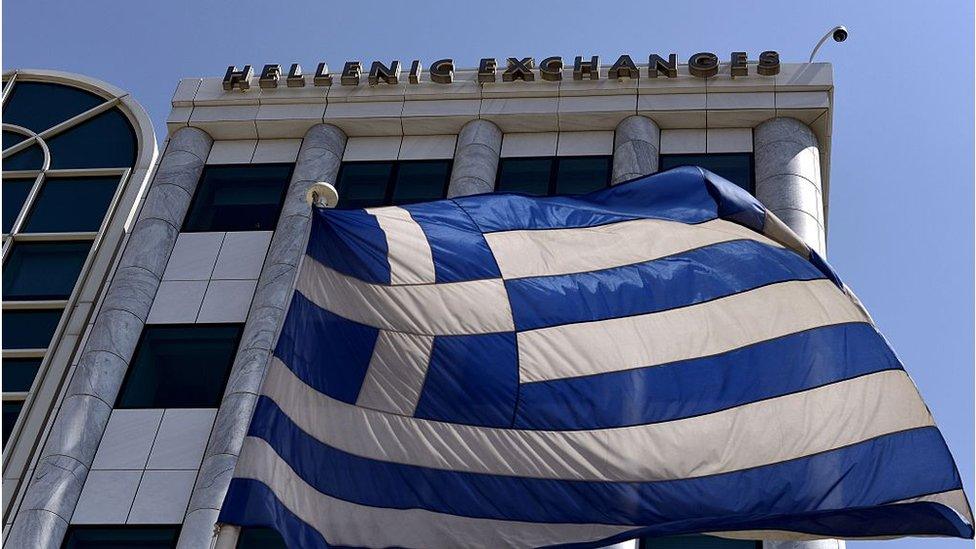Greece fails to secure fresh bailout funds
- Published

Greece is due to make its debt repayments in July.
Greece has failed to secure a deal to unlock the next instalment of its multi-billion-dollar bailout after talks with eurozone finance ministers broke down.
Eurogroup head Jeroen Dijsselbloem said there was still a gap "between what could be done and what some of us had expected should be done".
Nonetheless, he said they were "very close" to an agreement.
Informal talks are expected to continue ahead of the group's 15 June meeting.
The Brussels-based meeting was aimed at deciding whether Greece had done enough to receive a €7.5bn (£6.4bn; $8.3bn) loan plus debt relief.
The cash is vital for Greece to avoid defaulting on a debt repayment due in July.
To secure the funds, the country has had to enact a series of economic reforms.
The International Monetary Fund and Germany are reported to have disagreed over how to help ease the country's debts once its rescue programme ends next year.
The IMF's participation in Greece's latest bailout hinges on resolving this issue.
"The feeling was.... more work was needed to be able to have that kind of clarity that the financial markets understood and the Greek people understood (of) what to expect at the end of the programme period in terms of debt relief," Greek Finance Minister Euclid Tsakalotos said.
However, he also said he was optimistic that a definitive deal could be brokered by the time of the next formal meeting in June.
Figures released earlier this month showed that Greece had fallen back into recession for the first time since 2012.
The country's gross domestic product (GDP) fell by 0.1% in the first three months of the year after shrinking by 1.2% in the final quarter of 2016, the Eurostat figures showed.
- Published18 May 2017
- Published20 February 2017